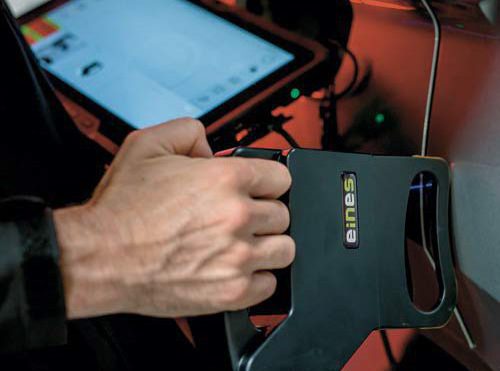Today operations, quality, and manufacturing managers have a choice when facing the dilemma in error-proofing efforts. Repeat methodologies from the past or go forward using Artificial Intelligence (AI).
Managers confront the question – do we adopt new technologies or continue with the status quo? Today’s automakers face one issue: advanced digital automation must be flexible, robust, affordable, and efficient when installed on moving lines. That generally includes a rollout of lean principles integrated with digital automation. Without Artificial Intelligence (AI) integrated into the factory software, measuring defects on a moving line will pose serious problems in repeatability and accuracy.
According to the FMEA (Modal Analysis of Failures and Effects) inspection process guidelines, the “human visual inspection” is effective or reliable in only 80% of cases based on the observation of multiple factors such as different points of sight or operators, reduced cycle time, visual fatigue and defects not detected by the human eye, among others things.
Human intelligence is summarily the mental quality that consists of learning from experience, adapting to new situations, understanding and handling abstract concepts, and using knowledge to manipulate one’s environment.
Artificial intelligence (AI) uses data and algorithms to replicate human decision/thinking ability. AI offers scalability while taking a good quality process and making it “best practice.” This while providing manufacturing intelligence and innovation to achieve today’s tightened customer quality requirements. (I.e., IATF-16949)
Latest trends in manufacturing and production technologies, including augmented reality, artificial intelligence, and industrial robotics, offer ways to increase productivity, improve quality and reduce cost by automating complex and monotonous tasks. Likewise, surface simulation technologies can leverage real-time data and mirror the physical world in virtual models, including machines, products, and humans.
Eines Vehicle Scanning Simulation (EVSS) optimizes the number of cameras used and reduces implementation time as configuration actions can occur offline. EVSS also allows for pre-planning multiple configurations for all current and future car bodies. Eines has developed a tool to simulate the whole inspection process utilizing the vehicle 3D model outer skin and support all required camera 3D data calibration to provide accurate coordinates of subsequent process steps and precise vectors for auto-repair processes.
AI is a top to bottom quality control concept streamlining your relationships with suppliers and customers. Strengthening AI algorithms to mimic human intelligence increases the production process’s speed, flexibility, and efficiency, thus leading to a broader range of products.
The EINES Esφi Moving Line Surface Quality Production Scanner. The original moving line integrated AI system can scan vehicles on a moving line with short cycle times, no interruption of production tact times, and low maintenance, resulting in higher productivity and efficiency.





